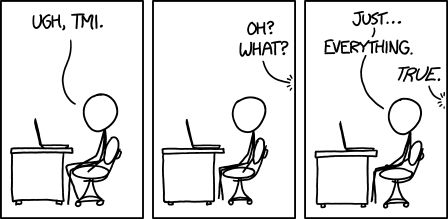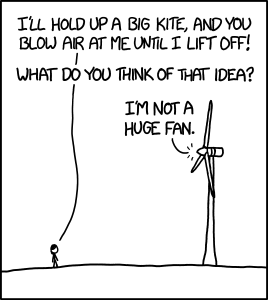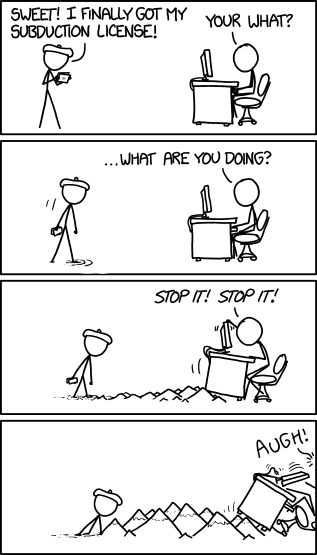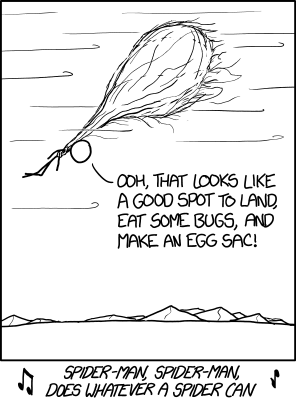Tuesday, December 2, 2014
small poem
real and fiction mix
like candle flames flickering on
my tolerant skin
my heart is so warmed
we msg in jokes and
my heart is a home
where you rest, play
and sleep
Sunday, November 23, 2014
Translations by Adrienne Rich (1972)
my age, or younger
translated from your language
Certain words occur: enemy, oven, sorrow
enough to let me know
she's a woman of my time
obsessed
with Love, our subject:
we've trained it like ivy to our walls
baked it like bread in our ovens
worn it like lead on our ankles
watched it through binoculars as if
it were a helicopter
bringing food to our famine
or the satellite
of a hostile power
I begin to see that woman
doing things: stirring rice
ironing a skirt
typing a manuscript till dawn
trying to make a call
from a phonebooth
The phone rings endlessly
in a man's bedroom
she hears him telling someone else
Never mind. She'll get tired.
hears him telling her story to her sister
who becomes her enemy
and will in her own way
light her own way to sorrow
ignorant of the fact this way of grief
is shared, unnecessary
and political
Tonight No Poetry Will Serve by Adrienne Rich (2008)
taking a long look
at the new moon's eyelid
later spread
sleep-fallen, naked in your dark hair
asleep but not oblivious
of the unslept unsleeping
elsewhere
Tonight I think
no poetry
will serve
Syntax of rendition:
verb pilots the plane
adverb modifies action
verb force-feeds noun
submerges the subject
noun is choking
verb disgraced goes on doing
there are adjectives up for sale
now diagram the sentence
Saturday, November 22, 2014
Snow season
The sun has gone down early. It is snowing.
I am meant to be working
My thoughts linger on food
My eyes linger on my phone
Smiling
My body is warm
I am wearing a big hoodie
Lights and shadows play in my quiet house
Just to laugh with him, that would be good
It is almost Christmas
And I ask my self, what do I want
life
frothing at the gills
fishy flipping anger
I wonder if everyone is like this
My tired, shut mind opens and opens
I look and look and look at Moula
I am running
I am almost falling
I dress up to leave
then everything is better
moving and focused.
I am round and large
warm
rejuvenated
blue
my body
and I am lost
swinging in the air
it hurts
that kisses and hugs
are reserved for those
that don't hunger for them
time and time again I
come out swinging too wide
too wide on the corners and the blue
blue, blue water
falls cold on my body
drenching the sounds. the air
swings and swings, again and again
this old, old night
hurts.
Wednesday, October 15, 2014
Monday, September 29, 2014
aged
My clothes, nothing holds still, even these words
Try to run from their humble beginnings
Love, which makes everything new
Love, where it all began
Makes me sleepy
Suddenly it's over.
There are just chairs where my parents were sitting and watching
The ice age on Nat Geo
Tuesday, August 5, 2014
a place
the grass beyond the sidewalk
the treeish green space
the long stretches of walk
the sun going low
clouds like strokes of paint
the blue azure that we inhabit
dedication
dedicated to my lovers
the ones yet to come, the present and the past
I wish them there and they dance in the air
land like snowflakes on their lips, their hair
so he may taste my words on his tongue
lean into my poems for comfort and for warmth
laugh as I kiss him good morning and good night
my poems let him sleep
while I stay up all night
the Dream
a window
just this wide
everything else is unknown, fear and horror
but this
lying down in the afternoon on the soft skin of my arm on the couch
feeling so sad-happy that any thought, text or conversation may make me cry
dear God
this is it.
Special
I smile and exchange a happy look with my brother
There is so much specialness! I say funny things
To make everything easy
The weekend
its almost dead tonight
there is no money
no career, no finished projects
tonight my room begs for company
little sounds come from far places
the clothes on my bed
propel towards me
I lean into them
clothed, warm, worn.
Patterns
swallow it and let it grow on your back
etched in grey and gold like a hunting falcon
soar slow in the twisting spirals of the wind
let yourself feel the pattern, the lift, the drift
Father
there is no talking to him
both he and I live in a mosaic
within which we must
hold our own.
what sort of a father is this, but he is mine
my actions, my words too, are all wrong.
celestial bodies
where are her clothes?
her air hits my face in silence
stars are showing. the moon
is a bellybutton gem among them
I am in bliss in this intimacy
Monday, July 21, 2014
walk
I woke up with two lines of a song in my head
but music is frail on a night like this
Saturday, July 5, 2014
space
between nib and ink
between tear and eye
one produces the other
drops fall on paper
washing away the hate
that gathers like dust
from the dailiness of days
where is there space
between you and I
between my things and your things
between what you see and what I see when we sit together
our medium is liquid
no words said
no ink no paper no bed
just eyes which grieve the same dead
Sunday, June 22, 2014
Obsessed
and I wake up glowing from their memory
I drink chai and think of you
and smile my secret smile to my mother
who doesn't know it is you I'm happy with
we eat papayas and bananas in the morning
mellow sweet with evaporated milk
and I think of feeding it to you
in everything I do I think of you
waiting
My hair shivers
The sunlight woven in it
Dissipates
I do not look for you
I know that given patience
Enough time in absence
You will return
brave
pure raw joy. You'd laugh at my dramatization
I laugh too. You make me feel
it is worth it to try
to work hard at something
to finish things despite tiredness
to display myself
like this
emoji
not to speak to you now
when my mind is so preoccupied
tomorrow, perhaps
I wish finish some pending work
and then I will think of the right emoticon
to add to my 'How are you' to you
dawn
at 4 am. My fingers stroked my back
as if a strangers
I blinked and lay there waiting, for someone
but, nothing
I rolled over and saw 2 hours had passed
In the quiet I turned to my faith
Wet hands wiped wet eyes. Wet lips prayed
and night broke open.
a hug
I do not even look for it and then
your tall arms are around me
I am attached
to your thin frame
Friday, May 23, 2014
home
although I love them
and like skin from a body
I rip a bit bloody
birds say spring bird things
and I remember yesterday
it looked like the clouds of doom hung above this street
I went to sleep because I wanted to rest
and accidentally I rested into the morning
library
the words of these books -
do not immediately make sense to me
but that they exist comfort me
and I am myself
under the white lights
not doing what I am supposed to
but letting myself feel
anything can be done
Tuesday, March 18, 2014
Story-maker
I follow her geography as I'd follow a map
crescents and roundabouts in her hands
she tells me about today
I follow her until
she rests her arm around my shoulders
I dare to hold her hand
It is thin and small
and I can smell her
In that vicinity
Monday, March 17, 2014
from Bird by bird by Anne Lamott
The problem is acceptance, which is something we’re taught not to do. We’re taught to improve uncomfortable situations, to change things, alleviate unpleasant feelings. But if you accept the reality that you have been given – that you are not in a productive creative period – you free yourself to begin filling up again. I encourage my students at times like these to get one page of anything written, three hundred words of memories or dreams or stream of consciousness on how much they hate writing – just for the hell of it, just to keep their fingers from becoming too arthritic, just because they have made a commitment to try to write three hundred words every day. Then, on bad days and weeks, let things go at that.
…
I remind myself of this when I cannot get any work done: to live as if I am dying, because the truth is we are all terminal on this bus. To live as if we are dying gives us a chance to experience some real presence. Time is so full for people who are dying in a conscious way, full in the way that life is for children. The spend big round hours. So instead of staring miserably at the computer screen trying to will my way into having a breakthrough, I say to myself, “Okay, hmmm, let’s see. Dying tomorrow. What should I do today?” Then I can decide to read Wallace Stevens for the rest of the morning or go to the beach or just really participate in ordinary life. Any of these will begin the process of filling me back up with observations, flavours, ideas, visions, memories. I might want to write on my last day on earth, but I’d also be aware of other options that would feel at least as pressing. I would want to keep whatever I did simple, I think. And I would want to be present.
…
It helps to resign as the controller of your fate. All that energy we expend to keep things running right is not what’s keeping things right. We’re bugs struggling in the river, brightly visible to the trout below. With that fact in mind, people like me make up all these rules to give us the illusion that we are in charge. I need to say to myself, they’re not needed, hon. Just take in the buggy pleasures. Be kind to the others, grab the fleck of riverweed, notice how beautifully your bug legs scull.
…
(from the chapter called ‘Writer’s Block’)
Wednesday, March 5, 2014
road chalk
everything is normal. I love the damp patches
where the snow has melted. the roads are clean
there is sunlight. the clothes people are wearing
are not new. the ground is hard and solid.
there is no madness of perfection
but no! these are just people driving around
doing what they are doing.
Friday, February 21, 2014
poem
Don't you worry
I will write you a poem
I don’t know what I was thinking then
But now I know well who I am
And I’ll stop dreaming if it makes you well
My skin will never be whole and clean
My reality is mixed with death and dreams
But today my love is as clear as glass
I’ll give you time and an open ear
I won’t be cross don’t you fear
Sleeping at the wrong time
I roll with the lights on
And the clothes that comfort me when awake
Torment me in sleep
I am constantly waking
Open, then open
The orange lights
Are the brown of what I imagine
Your body would be
Absence, presence, both hurt
Where am I? And where are you?
Thursday, January 16, 2014
a letter from D.H. Lawrence to Louie Burrows (1911)
12 Colworth Road, Addiscombe, Croydon
1st May 1911
My dear Lou,
I suppose you will be writing to me tonight, so that our letters will again cross. I see the new moon is out, with a small star in attendance. I caught sight of it for the first time as I came down the steps of the library this evening. ‘Bless you, you little devil of a weapon’, I said. ‘You’re supposed to be lucky, but you snip the top of one’s hopes off, reminding one.’ Such a blue bright night over such ripe still yellow lamps: and at the end of it, pen and ink only. I curse these circumstances in their being and their results – let them be cursed.
At your behest I wrote yesterday fourteen pages of Paul Morel, and I sit with the paper before me to continue when this is done. I should like to be able to execute a will such as this – ‘I, D.H.L. do hereby bequeath to the devils, daemons, or Gods, all such power or fantasy as makes me a writer. I do divest me of all my extraordinary powers. I do bequeath my body and my life unto Louisa, daughter of ___.’ Don’t you wish I could do it. I would sell birthrights and deathrights for an embrace of thee, Louisa: toss ‘em out of the window, poetic powers, perceptivity, intellect – pouf: for a few kisses and a tight clasp. God help us, what a state.
Well – you see how my letters run riot. Sorry – forgive me.
Thine David Herbert Lawrence
from Camera Lucida by Roland Barthes. frame 48
Society is concerned to tame the Photograph, to temper the madness which keeps threatening to explode in the face of whoever looks at it. To do this, it possesses two means.
The first consists of making Photography into an art, for no art is mad. Whence the photographer’s insistence on his rivalry with the artist, on subjecting himself to the rhetoric of painting and its sublimated mode of exhibition. Photography can in fact be an art: when there is no longer any madness in it, when its noeme is forgotten and when consequently its essence no longer acts on me: do you suppose that looking at Commander Puyo’s strollers I am disturbed and exclaim “That has been!”? The cinema participates in this domestication of Photography – at least the fictional cinema, precisely the one said to be the seventh art; a film can be mad by artifice, can present the cultural signs of madness, it is never mad by nature (by iconic status); it is always the very opposite of an hallucination; it is simply an illusion; its vision is oneiric, not ecmnesic.
The other means of taming the Photograph is to generalize, banalize it until it is no longer confronted by any image in relation to which it can mark itself, assert its special character, its scandal, its madness. This is what is happening in our society, where the Photograph crushes all other images by its tyranny: no more prints, no more figurative painting, unless henceforth by fascinated (and fascinating) submission to the photographic model. Looking around customers in a cafe, someone remarked to me (rightly): “Look how gloomy they are! nowadays the images are livelier than the people.” One of the marks of our world is perhaps this reversal: we live according to a generalized image-repertoire. Consider the United States, where everything is transformed into images: only images exist and are produced and are consumed. An extreme example: go into a New York porn shop; here you will not find vice, but only its tableaux vivants (from which Mapplethorpe has so lucidly derived certain of his photographs); it is as if the anonymous individual (never an actor) who gets himself tied up and beaten conceives of his pleasure only if this pleasure joins the stereotyped (worn-out) image of the sado-masochist: pleasure passes through the image: here is the great mutation. Such a reversal necessarily raises the ethical question: not that the image is immoral, irreligious, or diabolic (as some have declared it, upon the advent of the Photograph), but because, when generalized, it completely de-realizes the human world of conflicts and desires, under cover of illustrating it. What characterizes the so-called advanced societies is that they today consume images and no longer, like those of the past, beliefs; they are therefore more liberal, less fanatical, but also more “false” (less “authentic”) – something we translate, in ordinary consciousness, by the avowal of an impression of nauseated boredom, as if the universalized image were producing a world without difference (indifferent), from which can rise, here and there, only the cry of anarchisms, marginalisms, and individualisms: let us abolish the images let us save immediate Desire (desire with mediation).
Mad or tame? Photography can be one or the other: tame if its realism remains relative, tempered by aesthetic or empirical habits (to leaf through a magazine at the hairdresser’s, the dentist’s); mad if this realism is absolute and, so to speak, original, obliging the loving and terrified consciousness to return to the very letter of Time: a strictly revulsive movement which reverses the course of the thing, and which I shall call, in conclusion, the photographic ecstasy.
Such are the two ways of the Photograph. The choice is mine: to subject its spectacle to the civilized code of perfect illusions, or to confront in it the wakening of intractable reality.
Wednesday, January 15, 2014
from Camera Lucida by Roland Barthes. frame 47. 1980
The noeme of Photography is simple, banal; no depth: “that has been.” I know our critics: What! a whole book (even a short one) to discover something I know at first glance? Yes, but such evidence can be a sibling of madness. The Photograph is an extended, loaded evidence – as if it caricatured not the figure of what it represents (quite the converse) but its very existence. The image, says phenomenology, is an object-as-nothing. Now, in the Photograph, what I posit is not only the absence of the object; it is also, by one and the same movement, on equal terms, the fact that this object has indeed existed and that it had been there where I see it. Here is where the madness is, for until this day no representation could assure me of the past of a thing except by intermediaries; but with the Photograph, my certainty is immediate: no one in the world can undeceive me. The Photograph then becomes a bizarre medium, a new form of hallucination: false on the level of perception, true on the level of time: a temporal hallucination, so to speak, a modest, shared hallucination (on the one hand “it is not there,” on the other “but it has indeed been”) : a mad image, chafed by reality.
I am trying to render the special quality of this hallucination, and I find this: the same evening of a day I had again been looking at photographs of my mother, I went to see Fellini’s Casanova with some friends; I was sad, the film exasperated me; but when Casanova began dancing with the young automaton, my eyes were touched with a kind of painful and delicious intensity, as if I were suddenly experiencing the effects of a strange drug; each detail, which I was seeing so exactly, savouring it, so to speak, down to its last evidence, overwhelmed me: the figure’s slenderness, its tenuity – as if there were only a trifling body under the flattened gown; the frayed gloves of white floss silk; the faint (though touching) absurdity of ostrich feathers in the hair, that painted yet individual, innocent face: something desperately inert and yet available, offered, affectionate, according to an angelic impulse of “good will” . . . At which moment I could not help thinking about Photography: for I could say all this about the photographs which touched me (out of which I had methodically constituted Photography itself).
I then realized that there was a sort of link (or knot) between Photography, madness, and something whose name I did not know. I began by calling it: the pangs of love. Was I not, in fact, in love with the Fellini automaton? Is one not in love with certain photographs? (Looking at some photographs of the Proustian world, I fall in love with Julia Bartet, with the Duc de Guiche. . .) Yet it was not quite that. It was a broader current than a lover’s sentiment. In the love stirred by Photography (by certain photographs), another music is heard, its name oddly old-fashioned: Pity. I collected in a last thought the images which had “pricked” me (since this is the action of the punctum), like that of the black woman with the gold necklace and the strapped pumps. In each of them, inescapably, I passed beyond the unreality of the thing represented, I entered crazily into the spectacle, into the image, taking into my arms what is dead, what is going to die, as Nietzsche did when, as Podach tells us, on January 3, 1889, he threw himself in tears on the neck of a beaten horse: gone mad for Pity’s sake.








